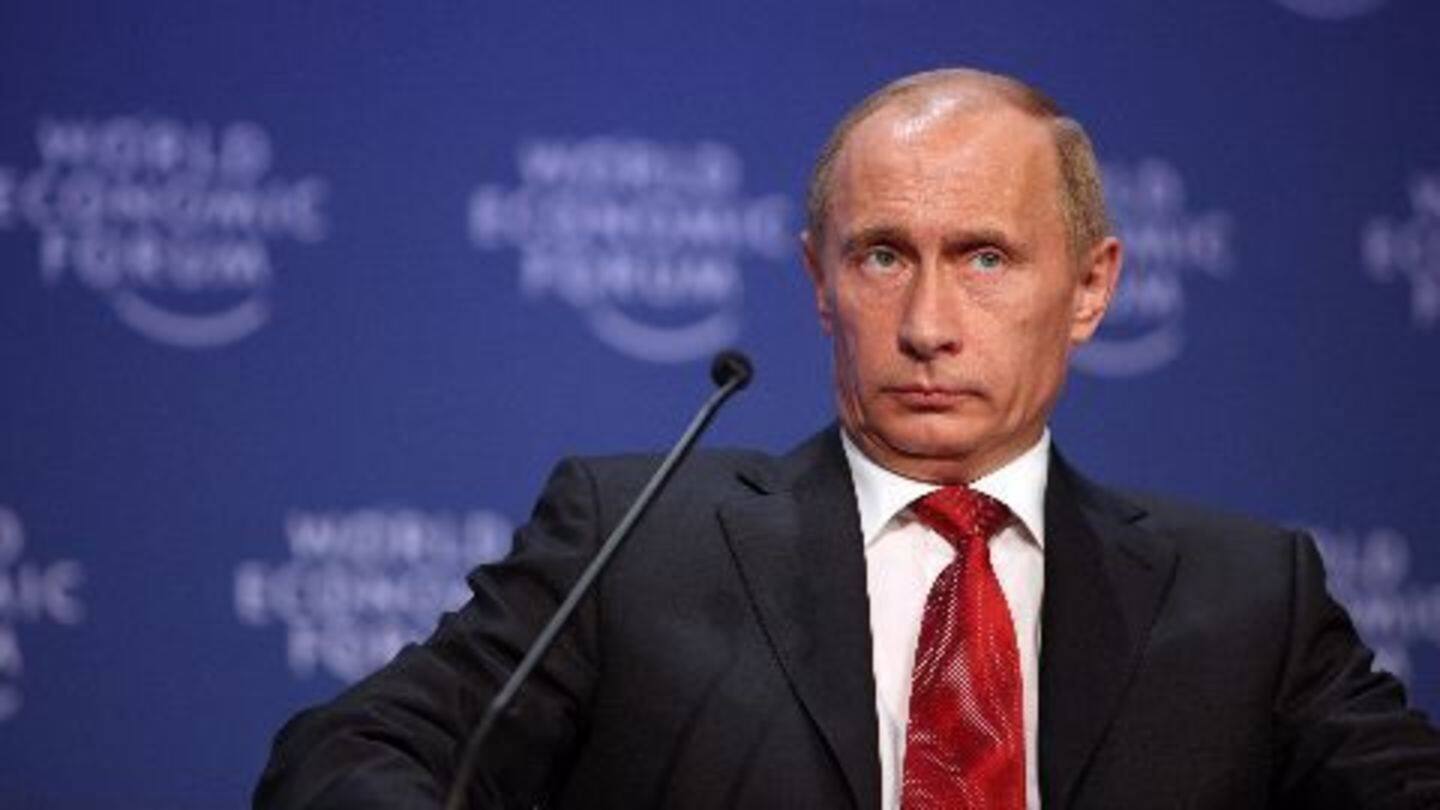
Putin orders govt to sue Ukraine
What's the story
Russian President Vladimir Putin ordered his government to sue Ukraine if it defaults on its $3 billion debt. The Kremlin stated that their most recent proposal to restructure Ukraine's debt was rejected by Kiev. In a televised interview, Russian Prime Minister Medvedev said he thought Moscow and Kiev had "almost no chance" to come to an agreement on the outstanding debt.
Nov 2013
Viktor Yanukovych and the Russian bail-out
In November 2013, under an ailing economy, Ukrainian President Viktor Yanukovych rejected an Agreement of Association with the EU and chose to accept a $15 billion bail-out package from Russia. Russia bought $3 billion in Ukrainian bonds, but Yanukovych was removed from office shortly after. New Ukrainian President Petro Poroshenko canceled the agreement with Russia, but agreed to pay back the $3 billion loan.
Bribe?
Russian loan or Russian bribe?
Russia is one of the largest energy suppliers to the EU and almost 40-50% of these supplies pass through Ukraine. Losing political influence in Ukraine would endanger their comfortable position in EU energy markets. Ukrainian President Petro Poroshenko said the bail-out was in fact a bribe to ensure that Ukraine does not sign the EU's Agreement of Association, a crucial step toward EU membership.
Payments
Debt payments
Ukraine missed loan payments in 2014 due to the Ukrainian crisis that severely crippled the Ukrainian economy. In May 2015, President Poroshenko signed a law that allowed Ukraine to restrict all payments on foreign loans unless renegotiated. After negotiations, Ukraine paid $75 million in interest on the $3 billion Russian loan on 22 June 2015, in order to avoid being held in default.
Information
What is the risk of default?
If Ukraine fails to pay its debt to Russia, it would be held as a "defaulter", which will severely affect the country's credit risk rating and international financial aid programs.
17 Nov 2015
Russia offers restructuring
At the G20 summit in Turkey, Vladimir Putin announced a proposal to restructure Ukraine's debt, allowing it to repay $1 billion per year over the course of three years. The offer was contingent upon the US, EU or a "first-class international institution", guaranteeing Ukraine's credit repayment ability. The US and the EU have so far refrained from giving any guarantees for Ukraine's debt.
8 Dec 2015
The International Monetary Fund (IMF) intervenes
The IMF rules on lending do not allow it to support countries that are in debt to official IMF creditors. Ukraine's debt to Russia has to be paid by December 20, the date that the $3 billion eurobond matures. The IMF changed their lending rules today to continue supporting Ukraine despite its non-payment of dues to Russia, in a move severely criticized by Moscow.